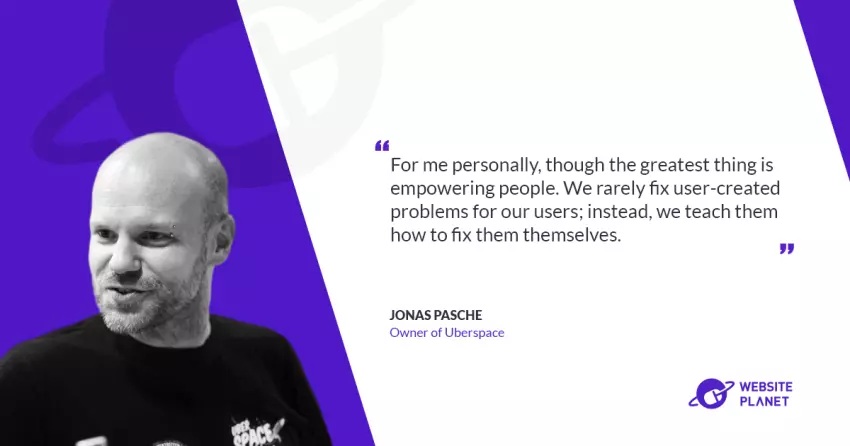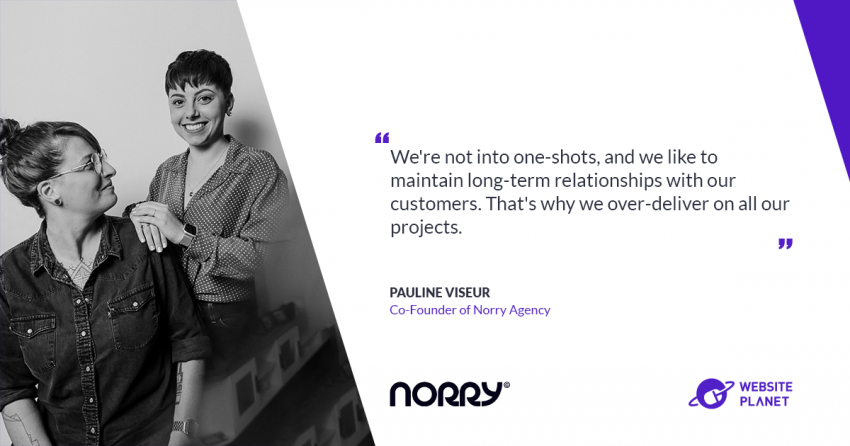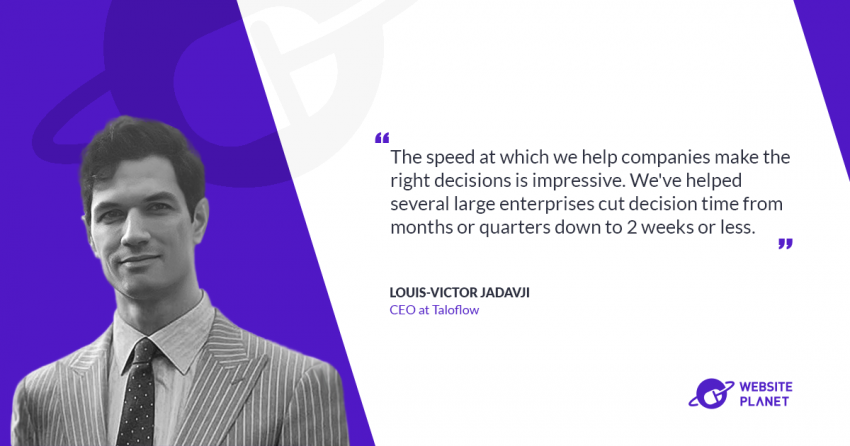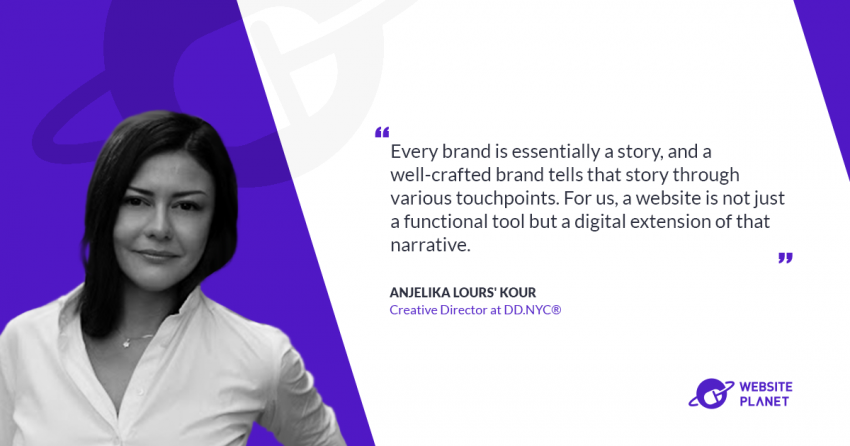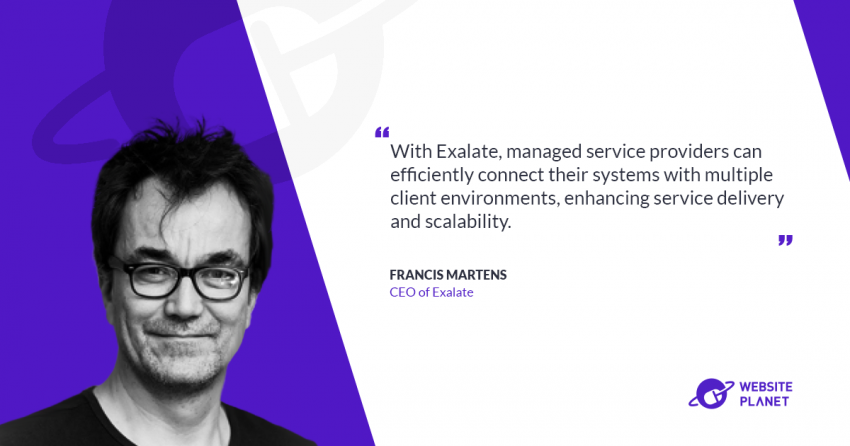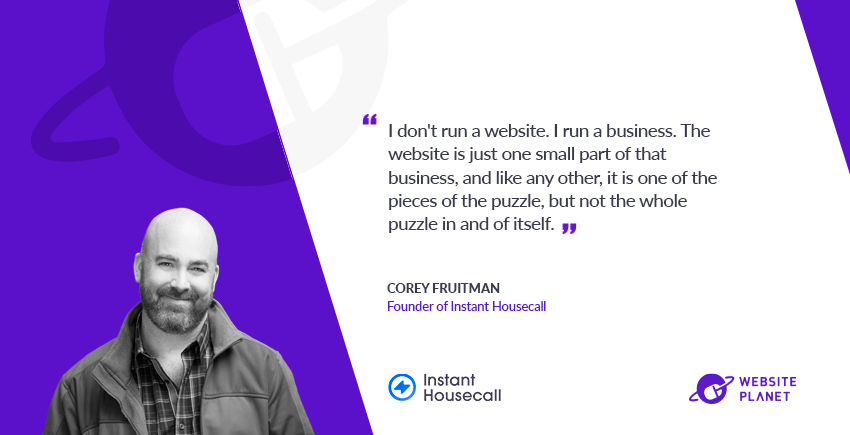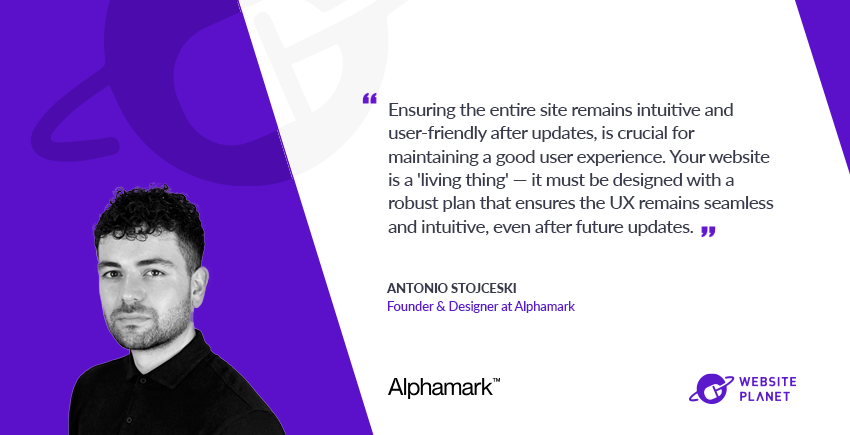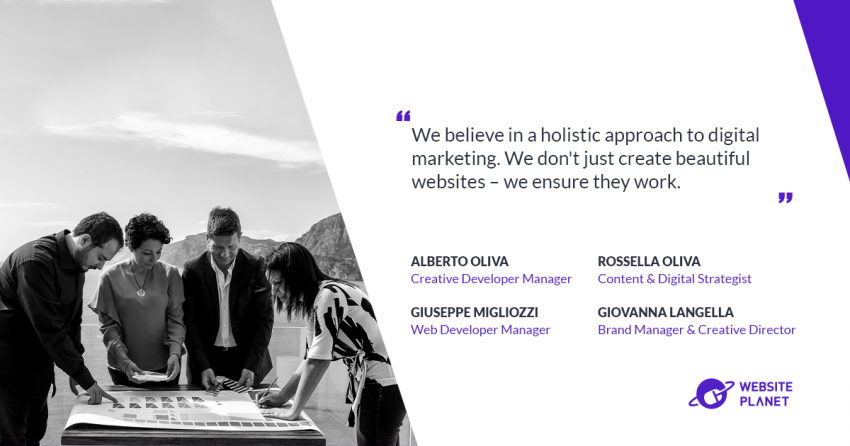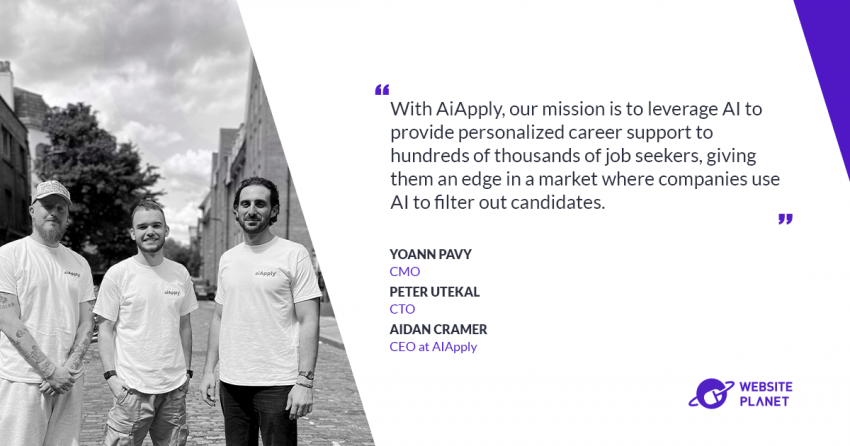Uberspace’s innovative pay-what-you-want model, as highlighted in an interview with Jonas Pasche on
Website Planet, builds a unique trust-based relationship with its users, allowing them to contribute according to their financial ability.
This approach not only fosters a sense of community but also encourages users to be more thoughtful and engaged in their choices. By empowering users with the freedom to set their prices, Uberspace creates a more inclusive and supportive environment, enhancing customer loyalty and satisfaction.
Additionally, this model helps the company maintain financial stability and growth, as users often reciprocate the trust by paying fair prices, ensuring the sustainability of the service.
How does Uberspace’s pay-what-you-want model benefit both the company and its users?
Letting users pay what they want deeply embeds “trust in people” into our pricing model. I think that’s the key element. At the same time, we get the opportunity to ensure that people understand that we do indeed have substantial cost-free choices and isn’t about going as low as possible under all circumstances.
Actually, we learned from feedback that some users were deeply touched by that trust. Especially in the beginning, we received quite a number of emails where users were telling us their – often depressing – stories, trying to reassure themselves that we’re really okay if they only pay a small amount per month. When we told them, sure, when you tell us that you can’t afford more, we believe you, no “evidence” needed – it often seemed to be the first time in a long while for them that someone actually made them feel welcomed without commenting on their financial situation. I would like to encourage everyone to try this more often in life. The vast majority of people is worth your trust!
But even if users can easily afford to pay a price matching our suggestion, it provokes thought. The major benefit is actually having a choice, and being able to make a difference. Our hosting product revolves around empowering people, and that’s not limited to technology: By letting them choose their price, we also empower them to be part of our economic system. Do people pay more? Good, then we can buy better machines, employ more people, pay them better, and develop more cool features. Do people pay less? Then let us show you how we try to still make the best out of it. Sure, if the majority of people would pay “too little”, we would die eventually. Turns out, unsurprisingly, most users wouldn’t want their hoster to die – so they take part in not letting this happen.
For us as a company, it spares us from lengthy discussions about how we are “too expensive” and also about how we are “too cheap” – both statements coming from real user feedback in our pre-PWYW days. We also enjoy a high loyalty of users, many of them hosting with us for a lot of years, and recommending us to their friends as the second-best thing after sliced bread. Low user fluctuation allows us better financial planning, which is helpful. Allowing users to stay even if they have to reduce their price, often just temporarily, also keeps a more stable income stream – other hosters would have lost them completely. Users remember when we hosted them during their financially bad times, and quite often they rewarded us later.
By the way: We started using “pay what you want” within our team as well. For about two years now, our own salaries are not only an open book within the team, but everyone makes his or her own choice about his or her personal salary. But that’s for sure a different story.
Can you explain the key features that make Uberspace different from other web hosting providers?
At first glance, we might not even seem that different: You upload some files and our web servers serve them to the world. Yay! But there are, in fact, strong differences about how we do this, the major ones being: a high degree of freedom, keeping things simple in a certain way, and empowering people. Let me explain.
Take “shell access” as a simple example for a high degree of freedom – providing a full-featured Linux user account to connect to by SSH. Many hosting providers don’t allow shell access for whatever reason. The thing is that users don’t simply shrug and live with that restriction. Instead, they build stuff like a “web-based” shell in a programming language like PHP which partially covers for the lack of a real shell. It’s a complicated, horrible, feature-incomplete, often dangerously implemented workaround that would be completely unnecessary if not to compensate for that stupid artificial restriction of not allowing real SSH access. So we simply do the latter, and this small example represents our mindset: If there’s something that can be done as an ordinary Linux user, our primary question is: How can we make sure that our users can use this? You can use real cronjobs like you’re used to. You can run persistent processes, and we provide a clean infrastructure for that. You can sideload that binary module into your PHP interpreter because we run a dedicated one just for you. In fact, in many aspects of our product allow you to do things that you would otherwise need to rent your own VM for.
Keeping things simple is a little tricky. Let me put it that way: We cater for the needs of people who have a different perception of “easy” than the others. For many people, setting up a website is “easy” when they can click around in some web-based installer. Fair enough! For them, a text-based terminal reminds them of the 1999 “Matrix” movie and scares them away. The thing is that a solid number of people consider a web interface as something that actually stands in their way. Their perception of what’s “easy” is… a text console! They’re rapidly fast with it, they know what they’re doing, they create great results, and we are giving them a familiar environment: If you usually work with a shell on a Linux or macOS system at home or at your workplace, you will immediately feel at home when you set up hosting with us. Everything works as expected, you log in using SSH keys, find your beloved shells, editors, programming languages, databases, git, and GnuPG – and if something is missing, we often can quickly provide it. We’re always improving our product and even keep a changelog – a common thing in software development, but rarely seen at hosting providers.
For me personally, though the greatest thing is empowering people. We rarely fix user-created problems for our users. Instead, we teach them how to fix them themselves: Which logs can they check? Which configs can they edit? Which commands can they use? When you receive feedback along the lines of “I never imagined I could do that myself, but after reading your manual I gave it a try, and guess what – it worked!”, then you know you really made a difference for someone when that person deliberately takes a moment of time to get back to you and share their learning success with you. When people leave us, they often share that they have simply “grown out” of shared hosting as a concept. They have built the confidence to run their own servers, and they built it through their time with us. I couldn’t be more proud of that, even though it has economic drawbacks when people leave, that’s for sure. We’re thinking about what we can do about it, but for sure it won’t be vendor lock-in. We want to convince our users, not hold them hostage.
We also implement a lot of things that we believe should be standard, but unfortunately aren’t. We do backups, at no extra cost. Users can directly access them. We wrap HTTPS around all websites, without hassle and cost. We monitor our systems in great detail so there’s no need to call if your website is down because if that’s because of us, we already know. We keep users informed about outages on a public site. When things go down, users can expect a blog post explaining in great detail what happened. We learn from our mistakes and want to share our learnings.
How does Uberspace ensure data security and privacy for its users?
Let’s start with our user database. For us it’s key that we ask for the minimum amount of data possible, in our case, that’s a mail address. In the past, we made even that optional, but it turned out that users tend to forget passwords, and it’s quite a problem if there’s no other option to recognize them. We don’t ask for names, we don’t ask for addresses. We don’t even get to see credit card information, and we keep bank transactions on a separate system outside our user database. If you’re particularly cautious, you could even top up your account by sending cash. Yes, people actually do that! Everything follows the “what we don’t have, we can’t lose” approach.
Regarding our hosting product, we take user separation seriously, as it’s the most rock-solid thing that separates privileges under Linux. Every user has his own PHP interpreter and process supervisor. Every user only sees his own processes. We put network namespaces – a base technology of containers like docker or podman – to good use, offering each user his dedicated network interface. We don’t offer unencrypted protocols at all. On the contrary: HTTPS is not optional with us, we were among the first to fully integrate and automate Let’s Encrypt for every single site hosted with us, and redirecting HTTP to HTTPS.
Oh, and another thing that we expected to be a standard everywhere: We do updates! When you ask security people about the single most important thing to do, it usually is “install all available updates, and install them fast”. That’s what we do, full-stop. On the other hand, we also actively remove software that’s falling out of their developer’s support. We are aware that this might create inconvenience for some, but it’s important for us to not only keep our own software up to date but also to motivate and ensure that our users do the same with the software they install themselves, like a content management system or a shop software.
Data security is not only about not losing data to others, but also about not losing data entirely: We put a priority on reliability, using Ceph storage with three copies of data distributed over three different systems, and we also do two different types of backups to two different backup storages, a file-based one (that’s the one that users can access themselves) and also a block-based one should we ever have to do a true disaster recovery. They reside on dedicated hardware with limited access even within our company.
\What kind of support can customers expect when setting up and managing their websites on Uberspace?
Our users can expect that we engage with their issues and talk to them at eye level – we try our best to make “getting support” as easy and comfortable as asking a friend for help.
We patiently explain things, we help them understand the root causes of problems, we help them build debugging skills, and we refer them to external sources if these provide additional value to them. Even if it’s something clearly out of our support scope – if we at least have some ideas, we happily share them with our users. After all, we learn a lot from user questions ourselves, and we love sharing both questions and answers! It’s also helpful that there is only one product, which implies: There’s no incentive to abuse support for any upselling, and no need to tell people that they need a more expensive product than the one they already use.
Our pay-what-you-want pricing model also implies something about our support: We treat everybody equally, even though everyone pays what they want. There’s no need to fear being treated as a second-class user just because someone pays less – actually, we designed our internal account information tool that’s heavily used by our support team in a way that it doesn’t even reveal financial information about a user unless our support team specifically asks for that (which might be needed in cases revolving around payment issues). We treat everyone with the same respect, provide everyone with the same quality of knowledge, and also we don’t let anyone wait deliberately – paying less doesn’t give you slower answers; we’re giving fast answers to everyone.
Uberspace is targeted at people who love to do stuff themselves, so we’re giving them what they need: Tools (our hosting product itself), documentation (our manual) and as a huge extra: inspiration, which is represented by our lab. Here we collect guides that are mostly written by our users, about what they installed, how they did it, and what they suggest to do further. We make sure these guides follow a common standard, and we test all of them. This happens in public on GitHub, where our users typically already are: That way they can easily ask questions, create issues, and publish merge requests. We have some nice rewards to send them for noticeable work; currently, some beautiful paper notebooks that are hand-printed with our designs – something that we don’t sell as merchandise because true rewards can’t be bought, only earned.
Something that about a year ago I didn’t think about becoming necessary to point out: All of our support is provided by human beings. We actually read emails and we actually type replies – there are no AI bots involved. As more and more companies seem to try to get rid of their customer service by replacing it with chatbots, we pride ourselves in staying more conservative here – actually, we value our support as something that plays an important role in making our product better!
How does Uberspace contribute to sustainability and environmental responsibility in web hosting?
That’s a tough one, as web hosting for sure needs a ton of resources to build servers, it needs a ton of energy to run these servers, and it needs smart ideas on how to deal with all the heat generated.
Let’s talk about servers first. Our approach here is to use hardware as long as possible and to stay flexible by not committing to a specific brand or a specific vendor. We repair stuff ourselves if we’re able to. We reuse and refurbish hardware as long as it’s still suitable for a use case that we have. We sometimes even buy pre-used servers or components if they are a good fit for our hardware landscape – why waste new resources to build a piece of hardware that’s already there and working fine? Reusing things can come in all forms and shapes. A dedicated server that was rented out to a customer in the past is powerful enough to fit our hosting platform? We might add or upgrade network interfaces and integrate it into our cluster. Or if it’s not a good fit for that – we might turn it into a backup server, as these have different requirements in computing power, memory, and storage. We rarely throw away anything that can still be put to good use; actually one of the few reasons why we sometimes get rid of things entirely is when we consider their power consumption inadequate for the value they provide.
Energy is the next important thing. For sure all of our data centers provide us with “green power”; we made sure that’s part of our contracts. This comes with a huge “but”, though. As a hosting provider, we’re quite small. Running a data center for ourselves would be way over the top as of now, so we’re renting Rackspace in existing data centers, which in turn means that we are bound to their choice of energy provider – we have zero influence besides the contractual “green power only”, but given that there’s many shades of green, our only way to make a difference would be to carry our stuff to a different datacenter.
Also, not all data centers are the same. For example, our newest location which contains about half of our infrastructure qualifies as a low-energy data center with a PUE value below 1.15 under full load, which means they’re really good at being efficient, at dealing with the heat that servers inevitably create, they have some clever techniques to use natural wind passing through their buildings, and they bring their own solar panels into account.
What else? Well, we also try to keep overhead minimal. Sure, we have to run a lot of hardware, but we try to make it worth it. We pack our machines responsibly and well with accounts, in a way that we can provide good performance to our users, but also don’t have a lot of things sitting around idle. As servers use a lot of energy as soon as they are turned on, even when you don’t do anything with them, we make sure that every system that we run actually does a decent amount of work according to its use case.
Probably the biggest impact outside of the data center is – ourselves! As we not only live in different cities but even in different countries, we don’t have any kind of central office, which means: no wasteful commuting. Home office seems to be the new kid around the block for many, especially during the pandemic, but for us, it’s a simple reality for over 20 years now. For travel, we heavily rely on trains. Every team member is offered a train travel discount card, which people may also use for private travel. We’ve become huge fans of the ÖBB night train that connects our Vienna-based colleagues with Germany, and we use it often. For everyday use, we provide tickets for free public transportation to everyone – even though commuting isn’t necessary anyway, but people have private lives, and having public transport available reduces the incentive of owning a car. Last but not least, while other companies provide company cars, we provide company bikes! Team members simply choose a bike, and the company pays for it. If you want to create change, you have to start building it, it’s as simple as that.
What future developments or features can users look forward to from Uberspace?
Our biggest development right now is the switch from an enterprise-style Linux distribution (our current product line is based on CentOS) to a rolling-release Linux distribution (specifically, ArchLinux). This is not just because Red Hat has basically killed CentOS for what it used to be, but mostly because we felt that having a major distribution upgrade every few years no longer matches well with how we develop our product: It gives us a long period of stability, for sure, but the price for that is that the software included is a little… dated, so we have to do a lot of additional tweaking. Then we need to implement a huge and cumbersome migration process which is a pain for users and ourselves alike, even though we put a lot of effort into making it as invisible for users as possible.
Basically, we’re working on “the next and also the last” version of our hosting product, which from then on will evolve more constantly. The user benefit is that it will be much more likely to have more modern software versions everywhere, that there won’t be any major migrations anymore, and that it will be easier for us to implement things that users miss.
A bit further on the roadmap is to give users more control over how they can interact with our product by offering an API to work with. Internally we’re already moving software configuration to a newly developed central backend that serves as a single source of truth; all the various services build their configs derived from information stored there. Offering a user-facing API to that backend which goes by the name “Marvin” was one of the key ideas when building it, so we’re curious what users will do with that in the future.
Hand in hand goes a completely new mail system. Our current setup is based on rather old software that needs more and more patching and has grown into a quite complex system, and it’s time to end this complexity. We noticed that it became harder and harder to implement new features, so it was time for a redesign that lived up to modern standards. This is particularly important as major mail providers like Gmail rather aggressively implement more policies that factually turn into rules for everyone because no one can afford not to be able to talk to the big mail providers. For example, if you didn’t use technologies like SPF or DKIM in the past, that was a matter of choice. Nowadays it means, Gmail will no longer accept mail from you. While this is something that we have solved in our current mail system already, it gives a glance that mail in general is something that you always need to keep up with – and for that, we need to drop some old stuff.
Last but not least, Uberspace isn’t so much about features in the sense that features often equal some kind of vendor lock-in – just look at the major cloud providers and ask yourself if these prefer to make you more dependent on them in various ways, or if these make you wiser and let your competence grow. Our features are features of open-source software, and we don’t hide that. Our game is to enable people to make use of Linux as a platform, to become more curious about what they’re able to achieve, to become more confident about their skills, and to become part of those who actually shape the information age – instead of becoming its victims.
Find out more at:
uberspace.de
